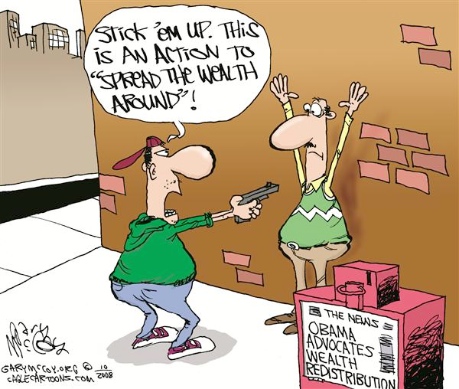When you write a check to the IRS, is that charity? According to UK-based philosopher Alain de Botton, that’s what we should call taxes, because the word “tax” is “colorless, odorless and offensive.” Yes, he’s really serious.
Modern political language seems to be intended to conceal the truth rather than make facts clear. It’s no wonder that nobody can agree about what’s going on when almost everybody is busy redefining words to mean what he wants them to mean — in order to make a point.
For instance, in normal conversation, if you say that someone’s budget has been cut, those words have a specific meaning. The money in the budget is something less than it was before. In politics, though, it can mean something altogether different. A “budget cut” might mean that a budget went up — not down — but that the rate of increase wasn’t as much as had been previously planned.
This language is dishonest, and its intent is to conceal the fact that real overall budgets are almost never cut. Politicians can claim to have cut budgets, even though spending still goes up.
Although examples such as this are common, I rarely hear the people behind the dishonesty admit to it as openly as de Botton does in his call to rebrand taxes as “charity.” The saddest part is that he doesn’t seem to grasp the fundamental dishonesty of what he’s suggesting.
When George Orwell published his well-known essay, “Politics and the English Language,” in 1946, it was intended to chastise everyone in politics for being intentionally unclear. Toward the end of the essay, he makes clear what he meant:
“Political language — and with variations this is true of all political parties, from Conservatives to Anarchists — is designed to make lies sound truthful and murder respectable, and to give an appearance of solidity to pure wind.”
Orwell would presumably be appalled at the lies and “pure wind” coming at us today from politicians and academics who want to change the way we think in order to reshape society to their liking. That would certainly include our dishonest philosopher friend, who recently told the BBC that tax offices should send “thank you” notes to the kind philanthropists who “contribute” to the state. In the BBC interview, he used this stunning logic to link forced taxation with freedom:
Alain de Botton: “Charity is something that people at all levels of society enjoy giving. To help somebody else is a fundamental sign of your freedom. However little you have, if you’re able to give something to somebody else, that’s a sign that you’re a free person.”
BBC interviewer: “But I don’t have freedom not to pay tax. I make charitable contributions. That’s a freedom, to make them or not to make them. There’s no choice when it comes to paying tax.”
Alain de Botton: “Of course there’s no choice. Nevertheless, I think that the act of giving tax should be in some ways acknowledged as something that you’re doing for other people — that it’s not merely a dry bureaucratic procedure. It’s actually an act of generosity, however forced.”
It’s rare that we see people in the public eye be this open about their desires to redefine words to conceal the meaning of what’s going on. It’s rare for someone to try to pretend that money that is stolen from us with coercion is actually an act of charity. If Orwell thought political language was dishonest in 1946, imagine what he would think of de Botton and the intellectuals and politicians who think like him.

 ‘What are we Christians to do?’ Jesus has already answered that
‘What are we Christians to do?’ Jesus has already answered that Shame almost got me fired — and shame still haunts me years later
Shame almost got me fired — and shame still haunts me years later Being alone allows us to indulge our worst flaws and avoid change
Being alone allows us to indulge our worst flaws and avoid change